A Book Better than the Movie?
I make the case for the E.T. novelization being superior to the film (which I haven't seen).
I think everyone probably has the one or two things they’ve never done that everyone else in their generation has done, and here’s a couple of mine.
1. I’ve never had a cup of coffee.
I’m sorry, the stuff is just gross. I remember carrying my parents’ post-dinner cups of Brim (“Fill it to the rim!”) to the table and wondering how anyone could possibly drink such a thing. That sentiment has stuck with me to this day. I’ve lost track of the number of people who tell me that I’ve just never had a “good” cup of coffee, but there is no such thing. I don’t even like coffee ice cream, and I love ice cream.
2. I’ve never seen the movie E.T. The Extra Terrestrial
Released in 1982 when I was twelve-years-old, you’d think it would’ve been a no-brainer that I’d have caught it at some point, but nope. Sure, the occasional snipped when flipping through channels, or as part of some other piece of media, but I have not viewed the movie in anything close to its entirety.
However, I did read the novelization of E.T. The Extra Terrestrial at least three or four times because it is a fantastic book.
Novelizations used to be sort of de regueur as part of film promotion, and I recall seeing many of them on the shelves of my mom’s bookstore. I’m pretty sure I read the novelizations of the Clint Eastwood classic Every Which Way But Loose and Burt Reynolds's Hooper, and of course I read the Star Wars novelization a dozen times or more.
Novelizations are mostly out of fashion, though Quentin Tarantino recently produced a novelization of his own film, Once Upon a Time in Hollywood, and my old friend Mike Sacks has produced a series of satirical novelizations for movies that never existed, including Stinker Lets Loose, which is an inspired amalgam of Burt Reynolds/Clint Eastwood movies in their 70s and 80s heydays.

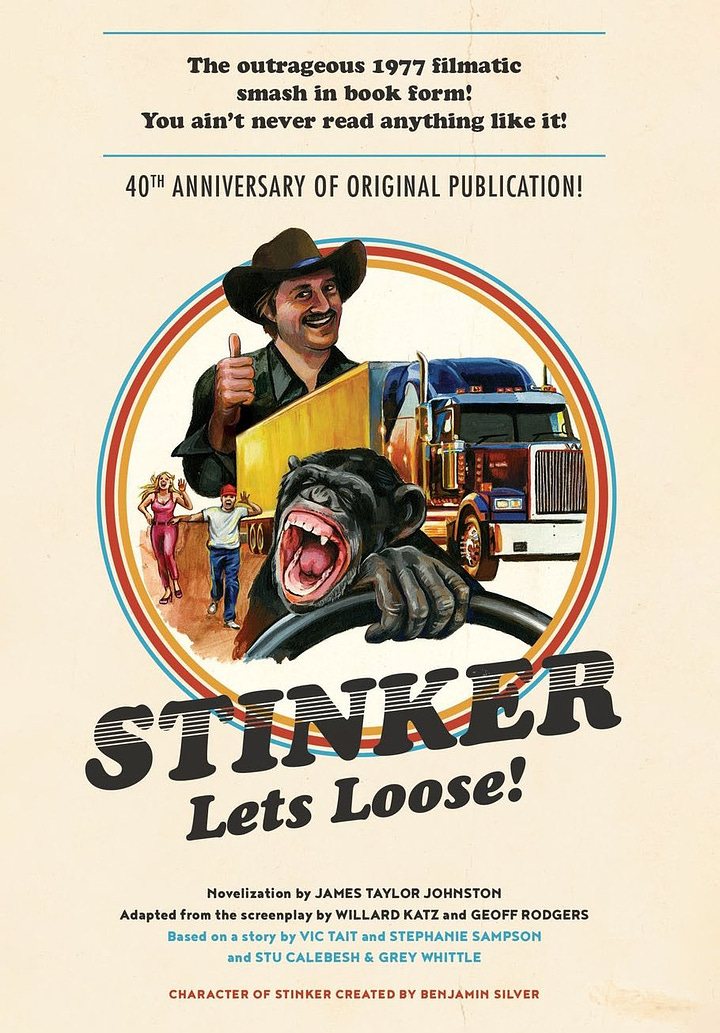
E.T. The Extra Terrestrial (in his adventure here on Earth) is no ordinary novelization because it was written by the great William Kotzwinkle, a wonderful writer across multiple genres and for different age groups. He’s written dozens of books for children, and is probably best known for the Walter the Farting Dog series, while also having won a World Fantasy Award for 1976’s Doctor Rat, a dark and rich satire in which a rat who has been liberated from his role as being experimented on starts collaborating with humans on experiments on his animal brethren.
Kotzwinkle also wrote cult classic, The Fan Man, featuring “Horse Badorties” an early 70’s NYC hippie trying to organize a concert in his neighborhood. Perhaps my favorite Kotzwinkle is The Bear Went Over the Mountain about a bear named Hal Jam who finds a manuscript for a novel in the woods, takes it to New York City, and becomes a publishing sensation.
More recently Kotzwinkle has been writing the Felonious Monk mystery series about a “monk with an anger management problem.” Kotzwinkle is sort of a hero figure to me in the sense that he’s a writer who has taken whatever opportunities are in front of them and done them beyond well. There’s no reason that the E.T. novelization needed to be a great work of children’s literature, but that’s what it is.
Having seen only snippets of E.T. the film I suppose I can’t declare that the novelization is necessarily a superior version of the story, except that the book takes advantage of the unique storytelling properties of print to reveal dimensions to the story that aren’t available in the medium of film. By its very nature the camera lens frames events from the perspective of an outside observer, and the film is focused on the experiences of the children who discover and protect E.T. In contrast, the book employs an omniscient narration that both frames the events as they unfold and can get inside the consciousness of any character, including E.T.
The opening chapter starts in third person narration that observes the entire scene from a full perspective:
We learn that the extraterrestrials are universe traveling botanists who have come to Earth to collect plant species. The creatures have a literal bond with the plant life, capable of communicating with them through telepathy. E.T., is introduced as one of the botanists having returned a specimen to the ship.
The movie, from what I’ve seen from scenes I have viewed, treats E.T. as something like the children who befriend him, but in the novel we come to know that he is a creature beyond age and has been fulfilling his mission for eons.
Seeing Earth from the extraterrestrial perspective allows Kotzwinkle to make the familiar unfamiliar, and even sinister as he does as E.T. is scrambling to return to his ship before it departs, chased by a team of men. E.T., referred to as “the old botanist,” sees a ring of keys on a man’s belt and imagines them as something wholly different.
Making the familiar strange is a hallmark of Kotzwinkle’s approach. In The Bear Went Over the Mountain, beyond donning a suit, the bear (Hal Jam) is not anthropomorphized. This is not a talking bear being human-like in its behaviors. It is a bear acting like a bear that various publishing professionals decide to treat as human. The juxtaposition generates numerous comedic moments while also making you appreciate how strange the machinery of publishing can be.
If the movie’s conclusion where Elliot and E.T. part as E.T. boards the spaceship to return home is as emotional as it comes across in the novelization we’re not looking at a dry eye in the house.
I’m guessing that anyone who knows the movie would have an even greater appreciation of the book, as it seems to serve as not just a retelling of the story you know, but as a companion and expansion on the original story, the scoop from inside the characters who populate the film. At the very least it’s an interesting lesson in how the same story is told differently in different mediums.
Usually when we talk about a book being better than the movie the book came first and the attempt to capture that spirit tends to fall flat on the screen. In this case we have a writer who took a screenplay and turned that story into a fully-realized novel.
At this point, never having seen the E.T. movie is a weird point of pride, so I’ll probably continue to avoid it. I’m not sure what finding pride in that says about me.
What generational right of passage have you missed out on?
Links
This week at the Chicago Tribune I talk about my 2024 reading resolution, which, believe it for not, is to read fewer books.
We move immediately from “best books” season to “most anticipated” books season. Here’s what LitHub has their eye on. And here’s the grandaddy of anticipated books list sites, The Millions on what they’re looking at this winter.
At Esquire, Vanessa Chan argues we should “rewrite the rules of historical fiction.”
I am in agreement with
that your narrator should be a “weird little freak.”This is a paid post from
, but maybe the tease will induce some to pony up to keep reading about why we don’t have a contemporary literary “Brat Pack.”McSweeney’s is continuing to count down the most read pieces of 2023. Enjoy this one from Shannon Reed, “What Your Senior Year High School Musical Says About You.”
Recommendations
1. Tomorrow and Tomorrow and Tomorrow by Gabrielle Zevin
2. Horse by Geraldine Brooks
3. We are Too Many by Hannah Pittard
4. Small Things Like These by Claire Keegan
5. Ways of Being by James Bridle
Shelly B.
My Biblioracle senses are telling me that Rachel Ingalls’ slim and sneaky classic Mrs. Caliban is a good fit for Shelly.
1. The Shame by Makenna Goodman
2. The Sense of an Ending by Julian Barnes
3. The Return of the Soldier by Rebecca West
4. How Proust Can Change Your Life by Alain de Botton
5. Kitchen Yarns by Ann Hood
Lisa H. - Trumansburg, NY
I guess I’m in a novella mood today because for Lisa I’m suggesting Alan Bennett’s Uncommon Reader.1
As I discussed in my year-end post last week, the experiment with mid-week content curated by someone else didn’t really work, but I’ve been thinking, if demand is sufficient, and time allows I may do an occasional recommendations-only post on Wednesdays. People can vote for that option by making their requests at the link just below.
For those following the Substack “Nazi problem” discussion,
of the Platformer newsletter, one of the most subscribed outlets on Substack, has been engaging directly with Substack leadership on the issue. He covers what he’s found and done here.My contribution to the discourse this week was in the form of trying to puncture an obvious bit of self-puffery from Substack co-founder Hamish McKenzie.
The
2024 off and running, can you believe it?
Me neither.
Until next time,
JW
The Biblioracle
All books linked throughout the newsletter go to The Biblioracle Recommends bookstore at Bookshop.org. Affiliate proceeds, plus a personal matching donation of my own, go to Chicago’s Open Books and an additional charity to be named. Affiliate income for the year has reset to $0. Let’s get buying!

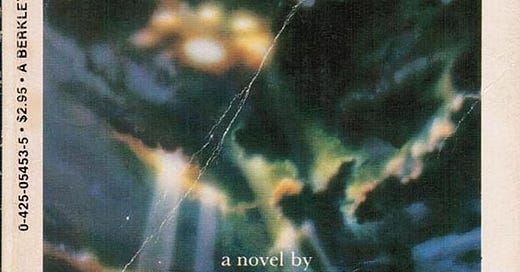


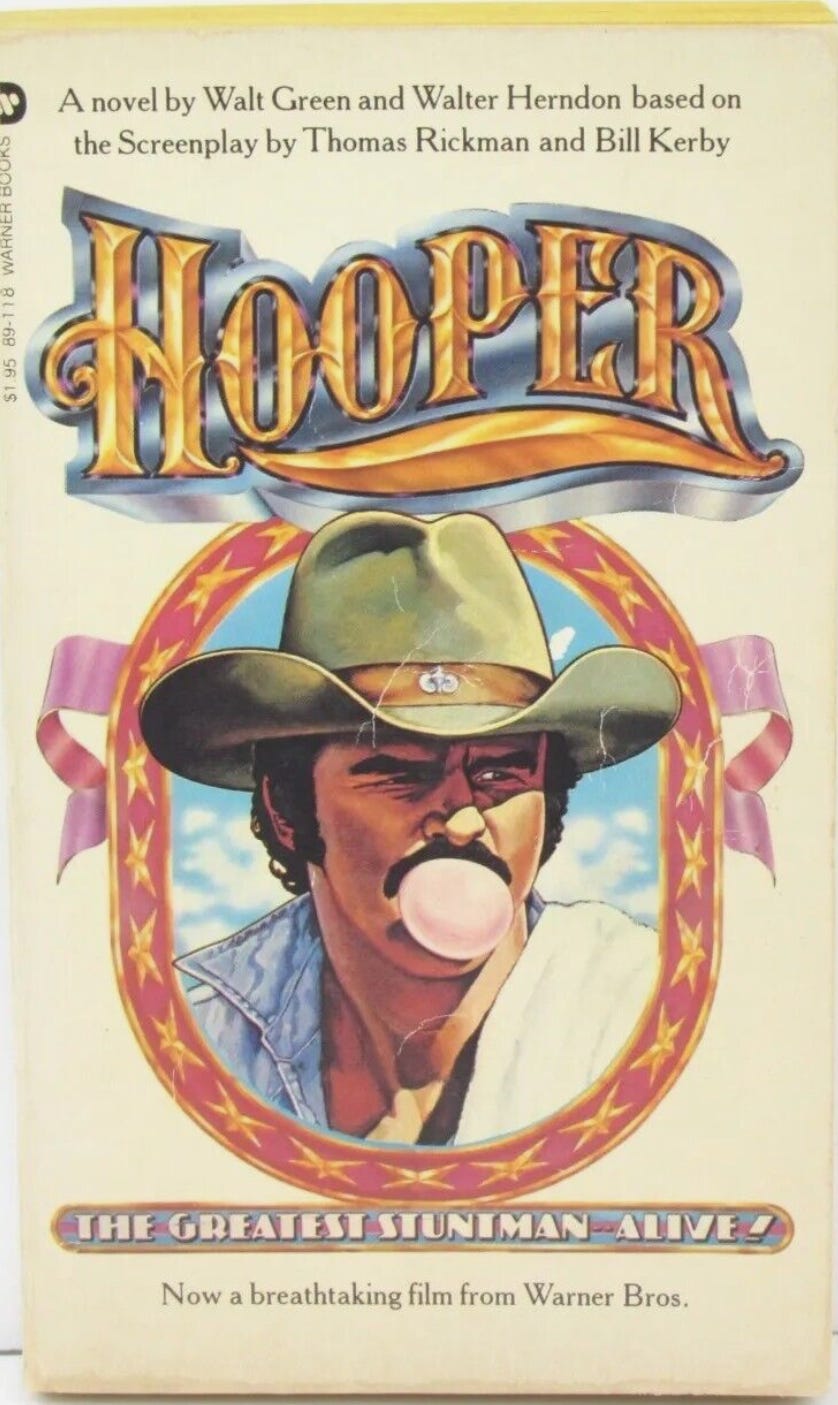

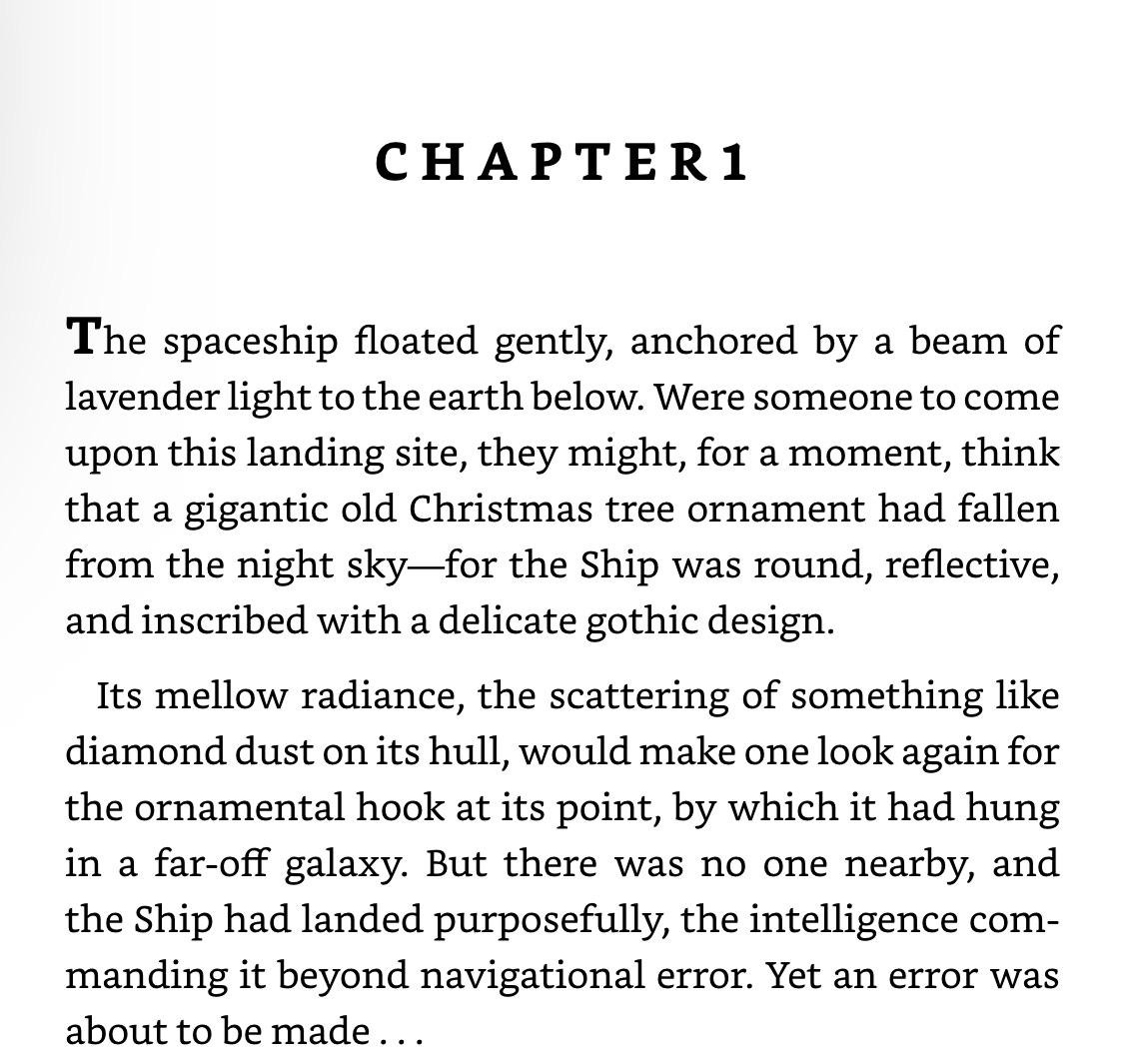
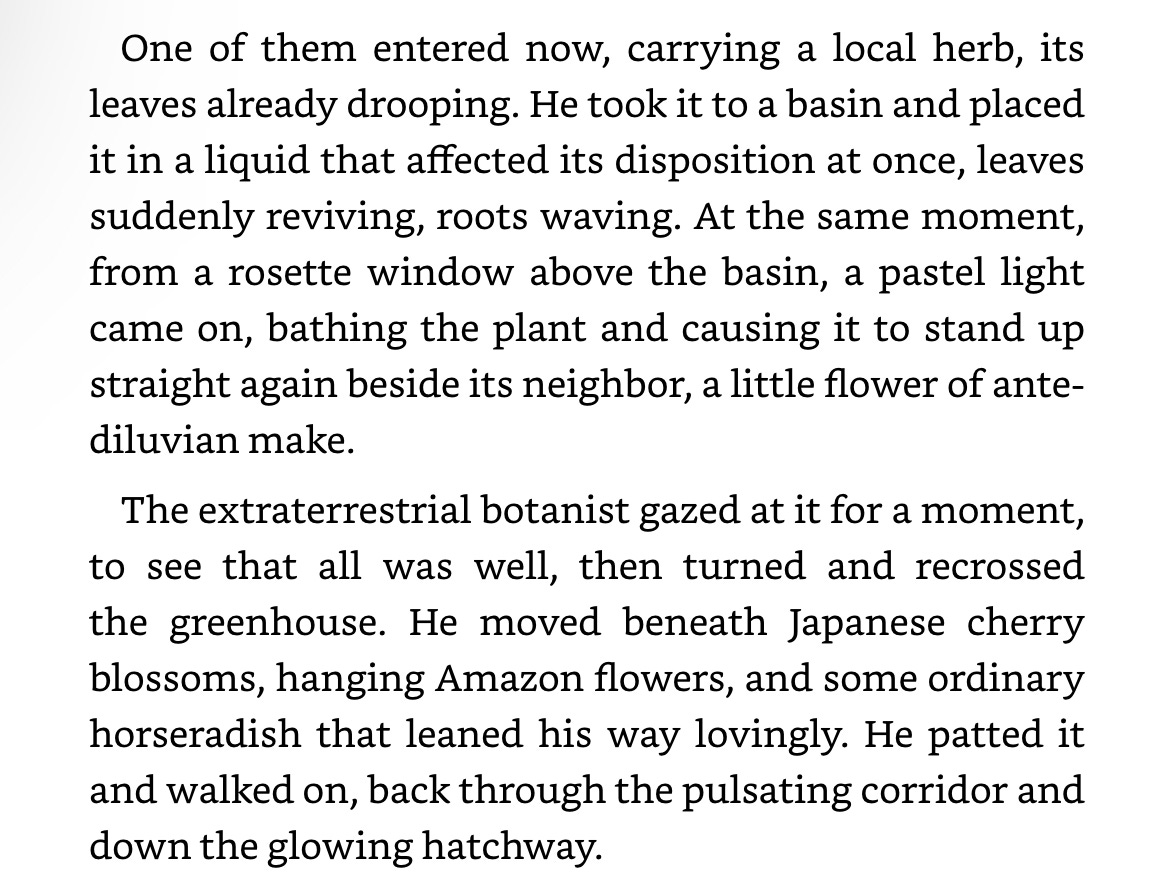
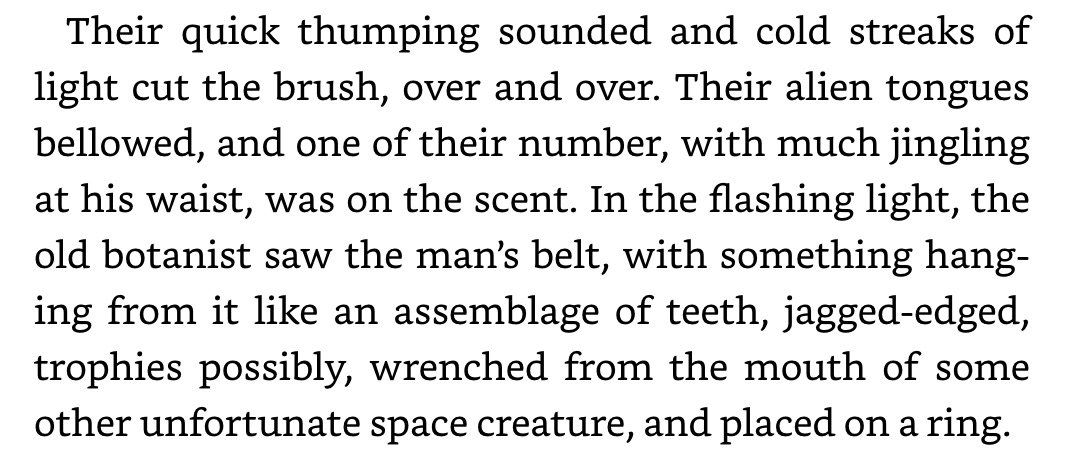
Someone wrote a novelization of the 1994 film version of "Little Women". That is not a joke.
I don't care for coffee (I'm a tea drinker), but I make an exception for café au lait when I'm eating beignets.
I was born in 1981 so was in high school when Titanic came out. New Zealand's rough two hour weekly equivalent of MTV (which
i never missed) played the tie in music video song every week for months, and quickly progressed from the "basic music video with some shots from the movie" version to the "as many dialog snippets as we can possibly Cram into this song" version. To say nothing of the radio. After a few months I was the only person who hadn't seen it, but felt like I had because I'd essentially seen the potted version many times. I also had a cousin who had accidentally received the Leonardo Dicapro haircut at the time and i felt weird about crushing on Leo who looked like my cousin. I only finally watched it with the re-release for the twentieth anniversary. I'm not sure I had missed out on anything, as the movie moments had saturated popular culture to such an extent I knew them all anyway.